Limbo was one of the first phenomena of the independent sector of the past generation with Braid, Fez or Super Meat Boy, each with it's personality and gender. In Limbo's case platforms and logic puzzles were mixed to overcome very inspired scenarios, with a characteristic use of silhouettes that was not too common to date. And it was not only the use of black and white, also the blur or humidity in the air, the minimalist history and the use of physics in a 2D world marked an era in digital distribution.
Over time, multiple clones have appeared that have not repeated success. Albert and Otto is the last of them, a distant cousin with a few differences regarding PlayDead's work that doesn't hide his inspiration. Homage, praise or lack of ideas? A bit of everything. If Limbo was a title made with few means, away from production with any "triple A", Albert and Otto in turn seems even more indie than Limbo. It's appreciated, that the same developers mention as a joke on their official page how much they remember said to the title of 2010.
Duration
I will not criticize that the level of difficulty is high from time to time, since the difficulty is well adjusted most of the game, but with an approximate duration of three hours and abundant checkpoints before each puzzle or bosses, is a game that doesn't show much variation or desire to play it a second time, once the game is over
There is a collectable as the only incentive for a second playtrough, although it doesn't provide any advantage or unlocking, just for achievements. They are items placed in general in places of difficult access, not hidden from view because the complexity of the scenario is far from being the strength of this title, but by being placed near precipices or high. It is an almost anecdotal extra.
There is not too much context or history in the game. A girl is kidnapped by a shadow and her brother Albert goes after her, accompanied by a supposed magical rabbit, Otto. They tell you, that Albert is not an innocent child as it may seem, in fact he is armed with a shotgun arm, but the truth is that in this first chapter - there are three more planned - it can not be said that the argument engages, not even that it's suggestive A minor problem because it's not a vital aspect in this genre either, although it's a lost opportunity to give something more depth to this world.
So what prevents Albert and Otto from being essential? It's quite irregular, both in the quality of the tests and in many other aesthetic issues. The soundtrack, for example, is very common and doesn't play well with sound effects. Perhaps by distancing from Limbo, the use of white has been inverted, which is now in the playable plane, and black for the stage, otto is the only one, that puts the color note. Actually it doesn't stop working, because it keeps remembering the PlayDead game with a worse setting, an identity crisis that subtracts what is popularly called "magic".
The art is a little loose, seems to opt for the silhouettes and at the same time there is some shading in the polygons that gives rise to a strange mixture between detail and simplicity. Although apparently many surfaces are flat, the boxes do have more detail and shadows stuck in the texture, which gives rise to absurd situations when the object turns and falls backwards - the shadow projects upwards. In other cases, decoration and mobile objects are confused because they have almost the same shades of white, so there are design problems that hurt the intuition. Small minutiae that added together affect the overall quality, since of course it does not fall in love at the first glance - unlike Limbo-.
Gameplay
The firearm is one of the most differentiating points of Albert and Otto with Limbo and other 2D platforms, since it can shoot some enemies and affect objects on the stage. It's slow recharging time prevents you from talking about a Metal Slug action shooter, but it always helps to clear the path of birds that dive into you or to cut ropes from which they hang objects as part of the puzzle. There is no ammunition or anything like it, the shots are for a few cases.
You soon find Otto, who is not directly controlled. It has several uses, one of them the unlocking of the double jump as long as it is with you. You can also go through small spaces if you fall down a ramp. The other great function is to make weight, perched on a mechanism that opens gates or activates a motor. Getting rid of him, makes you lose the ability to jump more, so many puzzles that seem to be simple will stop being, so when you realize that, you can't reach a place anymore.
The combination of Otto, the shots and some other skills that are obtained when progressing gives rise to puzzles that go from the goofy to the ingenious, some purely of intelligence and others with some pressure for time, like one in which you see rolling in the second plane a stone that is directed to activate some deadly spikes. You have liked much more the deduction, where you have to study the screen and it's not a skill challenge.
The control in certain jumps is measured to the millimeter, as if the only resource to raise the difficulty in the platforms was to expand spaces to the maximum. And of course, the use of physics for some puzzles and interaction with the environment can also produce unforeseen
Graphics & Design
The art is a little loose, seems to opt for the silhouettes and at the same time there is some shading in the polygons that gives rise to a strange mixture between detail and simplicity. Although apparently many surfaces are flat, the boxes do have more detail and shadows stuck in the texture, which gives rise to absurd situations when the object turns and falls backwards - the shadow projects upwards. In other cases, decoration and mobile objects are confused because they have almost the same shades of white, so there are design problems that hurt the intuition. Small minutiae that added together affect the overall quality, since of course it does not fall in love at the first glance - unlike Limbo-.
Conclusion
There is a lack of polish in the control, better taste in graphics -not necessarily more work- and a greater number of challenges based solely on deduction, not skill. However, within it's limitations, it entertains without big mistakes and it's launch price is honest for what it offers. If you are hungry for this type of games, it's not a bad option.
*Game was provided by the developer/publisher for this review
- Game: Albert and Otto
- Developer: K Bros Games
- Publisher: Digerati
- Genre: Puzzle, Platformer
- Price: $11.99
- Size: 630.73 MB
- Release date: January 10th 2018
- For More Info: https://www.home.kbrosinc.com/studio
- Download from Microsoft Store





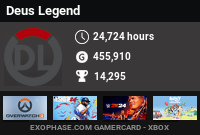
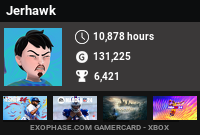
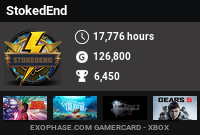
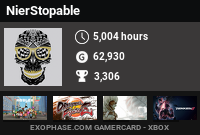
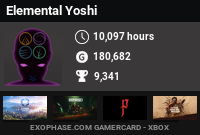







0 comments:
Post a Comment
Please be respectful and no spam.